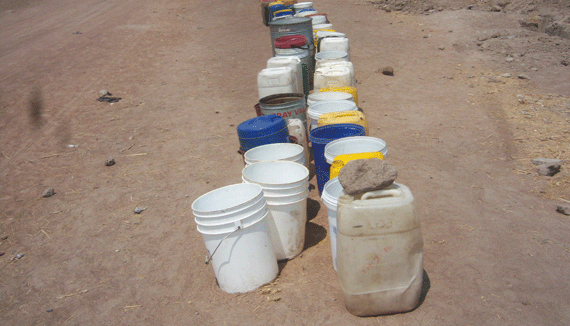
BY SILAS NKALA
PRESSURE is mounting on Chinese mining company Afrochine Smelting (Private) Limited to abort plans to conduct coal mining activities near Sinamatela National Park in Hwange.
Local residents have petitioned the company’s consultancy, SustiGlobal in a bid to stop the mining activities in the area which is a tourist attraction.
SustiGlobal Consultancy is doing the environment impact assessment for the Chinese company.
The Greater Whange Residents Trust (GWRT) and the Association for Tourism Hwange (ATH) raised concerns over the proposed exploration activities, saying they were likely to frustrate tourism activities.
“Exploration work entails land clearing, opening of access roads, geophysical and geochemical prospecting as well as drilling in the Deka Safari Area. The national park is a bedrock of tourism. Hwange National Park is one of Africa’s most unspoiled tourist destinations, attracting tourists from around the globe.
“Hwange is a feeder destination to other tourism attractions within Zimbabwe such as Mana Pools, Binga, Msuna, Matopos, Chimanimani, and Great Zimbabwe. Mining in Hwange National Park would, therefore, result in a significant reduction of tourists travelling to any part of Zimbabwe,” GWRT co-ordinator Fidelis Chima said in a letter to SustiGlobal.
“Existing within a 60-km stretch running through Hwange are seven active mining operations. There is enough coal outside of Hwange National Park and other protected areas and no cause for coal mining activities to be sought within Zimbabwe’s national parks. The over-utilisation of fossil fuels is contributing to global warming. There is no need to mine coal when there are cleaner renewable sources of energy,” Chima said.
- Chamisa under fire over US$120K donation
- Mavhunga puts DeMbare into Chibuku quarterfinals
- Pension funds bet on Cabora Bassa oilfields
- Councils defy govt fire tender directive
Keep Reading
He said the activities would also affect river systems stretching to the Zambezi and scare away the black rhino as the Hwange National Park is the only habitat with the species and other species that are under threat, which include pangolin, painted dogs, and the African elephant.
Last week, ATH chairperson Elizabeth Pasalk, who also runs a safari in the area, said they received a notice from SustiGlobal Consultancy that they had been given a special mining grant at the Deka Safari, amid fears that the tourism sector would be destroyed.
“We understand they were given 3 710 hectares of land close to Hwange National Park to do coal mining. The area is also close to Shangano cultural site for the Nambya people and these mining activities will affect culture. As safari operators, we have since written to President Emmerson Mnangagwa to reconsider issuing of special mining grants in safaris and national parks. We expect him to exercise his discretion on that,” Pasalk said.
SustiGlobal chief consultant Oliver Tafa said they had not yet received any complaints from stakeholders.
“All I can say is that special grants can be in an environment where there are parks, but the environment laws do not allow mining to encroach into parks and safaris, so we will always respect that. As for now we are waiting for stakeholders to respond to our questionnaires then we will know their concerns,” he said.
- Follow Silas on Twitter @silasnkala










